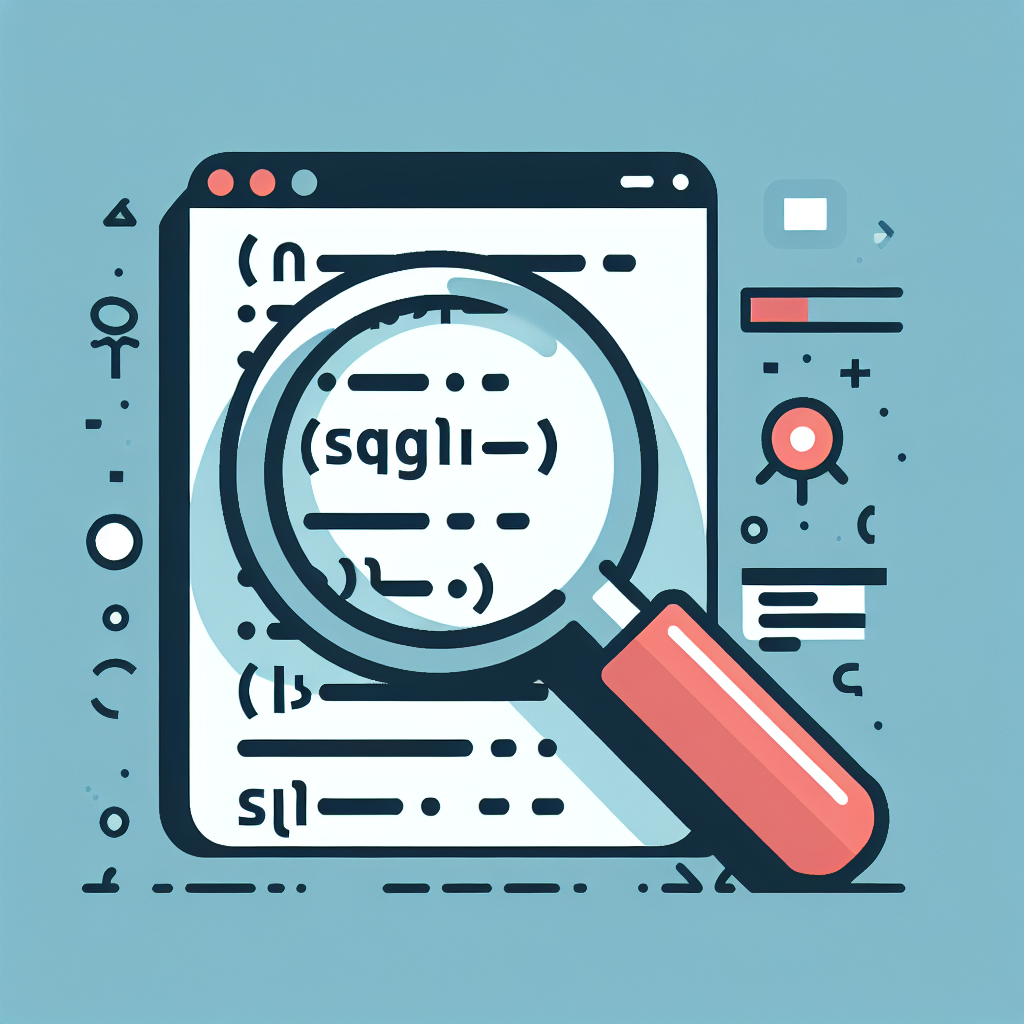Optimize Your SQL Code with Our Powerful Debugger Tool
Effortlessly debug your SQL code with our advanced SQL Code Debugger. Enhance performance, identify errors, and streamline your database management today!
Code to Debug
Debug Results
Output will appear here...
The SQL Code Debugger is an essential tool for developers looking to streamline database management by identifying and resolving SQL errors quickly. With features like step-by-step execution, breakpoint setting, and real-time error detection, this debugger enhances productivity and ensures seamless SQL query optimization. Ideal for database administrators and software developers, it simplifies troubleshooting, reducing downtime and improving application performance.

SQL Code Debugger: Streamline Your Database Development Link to this section #
An SQL Code Debugger is an essential tool for database developers aiming to streamline their SQL programming and enhance query optimization. By identifying syntax errors, logic flaws, and performance bottlenecks, an SQL code debugger ensures smoother database operations and efficient SQL code execution.
Key Features Link to this section #
Error Detection: Automatically highlight syntax errors and suggest corrections to prevent runtime failures. For example, missing semicolons or incorrect table names are quickly identified.
Breakpoint Setting: Allows you to pause execution at specific points, enabling you to examine the state of the database and variables. This feature is crucial for investigating complex queries and stored procedures.
Step Execution: Execute SQL commands step-by-step to monitor how data changes in real-time. This facilitates a deeper understanding of query behavior and logic flow.
Variable Watch: Keep track of variable values throughout code execution to ensure they are being manipulated as expected. This is particularly useful for debugging stored procedures and functions.
Performance Analysis: Identify slow-running queries and optimize them to enhance overall database performance. Tools often provide insights into query execution plans and suggest indexing improvements.
Code Example Link to this section #
Here's how you can set a breakpoint in a stored procedure:
CREATE PROCEDURE SampleProcedure
AS
BEGIN
DECLARE @Counter INT = 0;
-- Set a breakpoint here
WHILE @Counter < 10
BEGIN
PRINT @Counter;
SET @Counter = @Counter + 1;
END
END
Benefits Link to this section #
- Improved Efficiency: Quickly locate and fix bugs, reducing development time and minimizing downtime.
- Quality Assurance: Ensures that the SQL code adheres to best practices and maintains data integrity.
- Enhanced Collaboration: Debuggers often integrate with version control systems, fostering collaboration among development teams.
For more comprehensive information on SQL debugging, consider exploring resources such as Microsoft's SQL Server Documentation or Oracle's SQL Developer Guide.
By leveraging an SQL Code Debugger, developers can significantly improve their database management and development processes, ensuring robust and efficient SQL applications.
Frequently Asked Questions
What is an SQL code debugger?
An SQL code debugger is a tool that helps developers identify and fix errors in SQL code by allowing them to execute SQL statements step-by-step, inspect variables, and understand the execution flow. It is useful for optimizing queries and ensuring the correct operation of database applications.
How do I use an SQL code debugger?
To use an SQL code debugger, you generally need to connect it to your database and load the SQL script you want to debug. You can then set breakpoints, step through queries, and inspect variables to analyze the behavior of the SQL code. The specific instructions can vary depending on the debugger tool you are using, such as SSMS for SQL Server or PL/SQL Developer for Oracle.
Why is debugging SQL code important?
Debugging SQL code is crucial for identifying and resolving errors that could lead to incorrect data manipulation or performance issues. Effective debugging ensures the reliability, efficiency, and accuracy of database operations, which are critical for the integrity of applications that rely on the database.